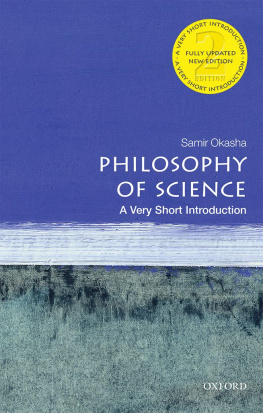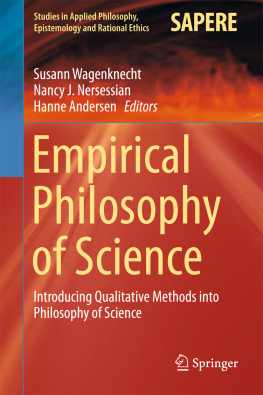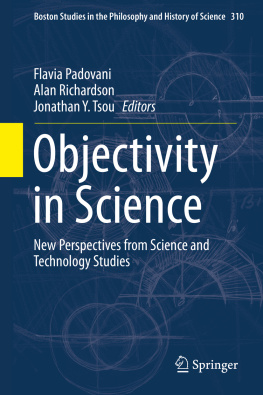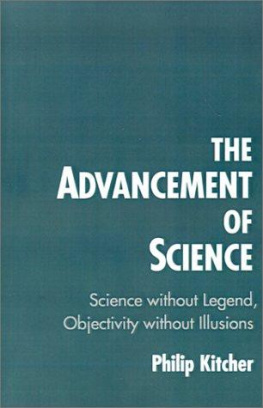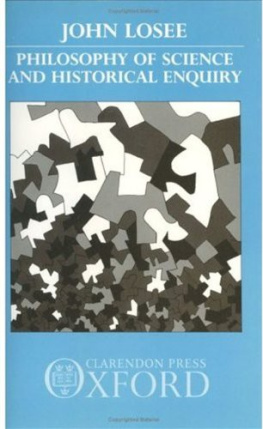All quotes from the Bible are from the King James Version. The quoted passages from Platos dialogues are translated from Greek in consultation with their English translations by Benjamin Jowett and R.G. Bury and their French translations by Albert Rivaud and Victor Cousin. The quoted Koranic verses are translated from Arabic in consultation with their English translations by Marmaduke Pickthall and A. Yusuf Ali. The quoted poems from Rumi are translated from Persian in consultation with their English translation by R.A. Nicholson. All other translations of the quoted Arabic and Persian texts are by the authors. Consistent with the traditional usage of terms, modern references to gender are not addressed, and the pronoun he and the term man are used to refer to any human being.
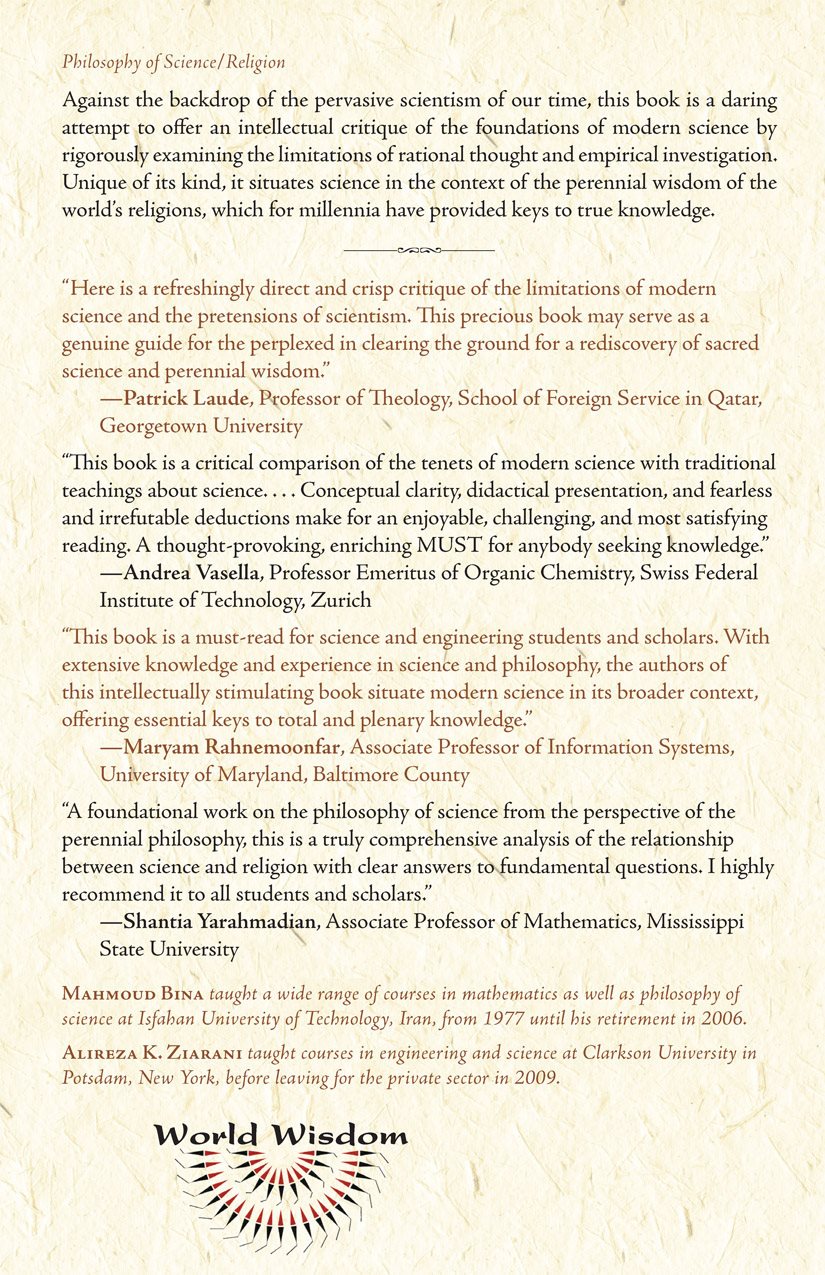
MAHMOUD BINA was born in Tehran, Iran, in 1938. He moved to England in 1958 to study engineering, but his quest for truth led him to pursue philosophy in Germany, where he received a doctorate from the University of Gttingen in 1969. Unsatisfied with the emptiness of modern philosophical thought, he came upon the writings of the perennialist author Frithjof Schuon, in whom he found his lifelong source of inspiration. He later moved to Switzerland and studied mathematics at the University of Lausanne, where he completed a masters degree program in 1973. After a teaching career at the University of Lausanne, he accepted a faculty position at Isfahan University of Technology, Iran, in 1977, a position that he held until his retirement in 2006. In addition to teaching a wide range of courses in mathematics, he taught philosophy of science for almost three decades, which left a lasting influence on countless students, for many of whom it marked the beginning of a lifelong journey in pursuit of truth. Dr. Bina and his wife live in Isfahan, Iran.
ALIREZA K. ZIARANI was born in Tehran, Iran, in 1972. He studied at Tehran Polytechnic where he completed an undergraduate degree program in electrical engineering in 1995. As a young man in search of truth, he was drawn to Professor Binas philosophy of science classes, which exercised a profound and enduring influence on his life. In 1996, he moved to Canada to study mathematics at McGill University, and later engineering at the University of Toronto where he completed a Ph.D. degree program in electrical and computer engineering in 2002. His academic career brought him to the United States, where he was a tenured faculty member at Clarkson University in Potsdam, New York, before he left for the private sector in 2009. As a professor, he taught courses in engineering and science, and led a biomedical engineering research program that was supported by the National Science Foundation and the National Institutes of Health. He currently resides with his wife in Bloomington, Indiana.
Few concepts have a stronger presence in the minds of our contemporaries than does science. But what is science? Can it be defined? When its meaning is not conditioned by a particular usage, science (from the Latin scientia) is synonymous with knowledgeand its lack, with ignorance. Science, or knowledge, cannot be defined, for in order to be able to define an object, one would first have to know what the object in question is, and thus, in order to be able to define knowledge, one would have to know it a priori. In other words, a definition for knowledge would imply prior knowledge of knowledge itself, the circular nature of any such definition showing its logical fallacy. Otherwise said, if knowledge is to be defined by means of itself, it will beg the question as to what knowledge is in the first place, and if knowledge is to be defined by means of something other than itself, then knowledge will have to be defined by means of ignorance (i.e. the lack of knowledge), which is absurd. This explains why science for traditional man was undefined, similar to the notions of point, line, and plane in geometry, the meanings of which we find within ourselves, and understand intuitively, but which we cannot define. One may be able to define such and such a branch of science by means of limiting the scope of the object of science, but science as such remains undefined and undefinable. This means that understanding its nature is not within the reach of pure reason. In other words, no rational criterion, that is to say, no formula, can be given to decide what science is or is not. Therefore, any attempt to propose a philosophy of science by mere rational means is self-refuting.
If science as such cannot be defined, what can we do to understand its meaning? One solution is to take note of those things that are called science in order to learn what is meant by science. For Plato, this solution is in fact the only one there is: Platonic anamnesis has it that learning is in fact recollection; in other words, if we did not bear knowledge in our immortal kernel, there would be no way for us to recognize it as such outside us. Thus, we will have to examine various things that are called science in order that we may intuit what science as such is. This methodology may be characterized as phenomenological, not in the current philosophical usage of the term but in its etymological sense, implying careful study of the things referred to as science and their common features, with the aim of intuitively learning the underlying notion.
A point of caution is called for here. In our search for various types of science for our phenomenological examination, care must be taken not to limit the scope of science to its particular types such as the natural or mathematical sciences, as is so commonly done when it comes to modern conceptions of science. Such an arbitrarily imposed limitation is obviously unwarranted and is contrary to an objective inquiry, for any prior determination introduced by extrinsic criteria would imply a prior knowledge of knowledge as suchwhich, as noted above, would lead to self-refutation.
Accordingly, to present an understanding of the notion of science in the light of the wisdom of the great traditions, we shall present a phenomenological examination of science from their perspectives in some detail in a later chapter. To put things into perspective, however, it is useful first to see how the modern philosophy of science views science.
The modern approach to the philosophy of science, such as Karl Poppers introduction of the criterion of falsifiability to distinguish science from everything else, often has only the empirical sciences in view: A sentence (or a theory) is empirical-scientific if and only if it is falsifiable, In other words, only that is scientific which allows for an experiment whereby, in principle, it could be proven false should such be the case.
It was Poppers dissatisfaction with the claim to scientific status of theories such as Freudian psychoanalysis or the Marxist theory of history that led him to his formulation of falsifiability as the criterion of (empirical) science. The underlying thought in the falsificationist approachin contrast to the inductivism of a Francis Bacon, for instance, for which science is the induction of laws from sets of data, or the verificationism of a John Locke, for example, which seeks to ground scientific theory in empirically-verifiable experienceis that while what is false can be proven as such either by logical argument or by experiment, what is capable of being proven false and is not confirmed as such by experiment is likely to be true, the certitude of its truth falling outside the reach of rational thought and the empirical investigation deriving from it.


